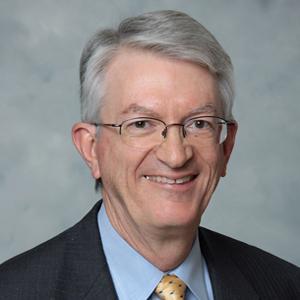Listening for Discovery
 To listen another’s soul into a condition of disclosure and discovery may be almost the greatest service that any human being ever performs for another.” - Douglas Steer
To listen another’s soul into a condition of disclosure and discovery may be almost the greatest service that any human being ever performs for another.” - Douglas SteerFor many years this quote has been the beginning point for every Level 1 CPE unit I supervised and for every Introduction to Pastoral Care and Counseling course that I have taught. The only quibble I have with Dr. Steere’s wisdom is his qualifier, “almost.” I suppose there are acute emergencies (feeding a starving person, dragging an unconscious person from a burning building) that demand action before listening. But listening until disclosure and discovery emerge is never to be discounted as anything other than a deep expression of love and mercy for my neighbor.
One of the “scriptures” that inform me about how broad, deep, and difficult listening can be as both professional and spiritual practices is Kay Lindahl’s The Sacred Art of Listening. This book of brief reflections pulls together many of the insights she had gained as the founder of The Listening Center based in Long Beach, California. She highlights the well-established fact that most of us listen in order to reply, convince, or change the other person(s). Is this tendency even more tempting for those of us “called” to be messengers of holy wisdom, speakers of divine words, defenders of eternal truths? Perhaps. But we also live in a culture where very little listening to the other is practiced. And what listening is done is purely to find the weakness or wrongness in our conversation partner’s position. This is particularly acute when dealing with political and institutional challenges. Our difficulty in listening comes to us naturally in contemporary culture and our privileged positions as professionals.
Thus, it becomes even more important for those of us who teach and practice the art of spiritual care and counseling to continually hone our ears and souls to practice deep listening. When I see behaviors, emotions, and beliefs in others that I believe need to be re-shaped, perhaps even discarded for something better (more like what I want), it is essential that I let go of my own preferences and closely attend to what my students, clients, or colleagues are actually communicating. My practice of “letting go” of my own protectiveness is the essential first step for my neighbor to potentially risk “letting go” as well.
I have never met an ACPE credentialed practitioner who did not deeply and personally understand how hard change is for self and others. Our lived worlds require that we patiently and deeply listen if a change is to occur, whether our concern is for individuals, organizations, or society. Sometimes we see, hear, and feel that which we do not like as we listen to others’ behaviors and words. As educators and counselors, such moments are difficult and require deep discernment as to a fitting reply. But even then, listening for the other’s soul remains our objective. May the professional and spiritual disciplines of deep listening attend our ways.
“If real success is to attend the effort to bring a person to a definite position, one must first of all take pains to find him where he is and begin there. This is the secret of helping others . . . In order to help another effectively I must understand what he understands.”- Soren Kierkegaard
Steven Ivy is a Retired ACPE Certified Educator. He can be reached at steven.ivy@acpe.edu.
